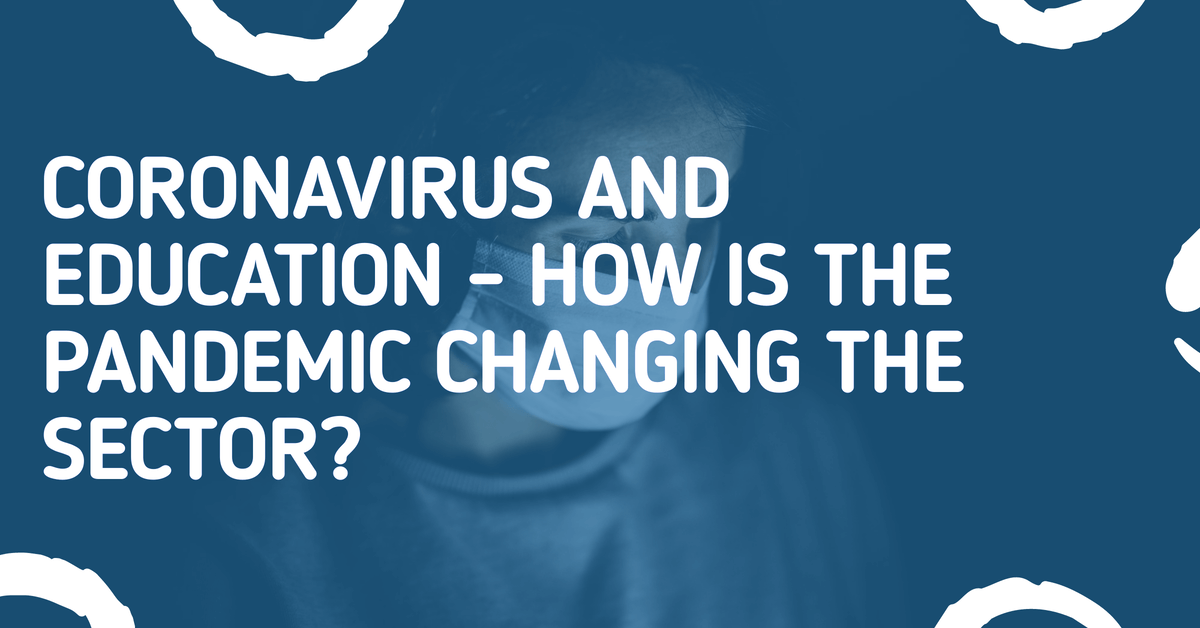Coronavirus And Education - How Is The Pandemic Changing The Sector?
 Pandemic The education industry was one of the most severely impacted by the pandemic. Millions of students worldwide were hit by the pandemic and schools continue to be closed even after a year. But will the pandemic change education as we know it? Let’s see what factors could be at play.
Pandemic The education industry was one of the most severely impacted by the pandemic. Millions of students worldwide were hit by the pandemic and schools continue to be closed even after a year. But will the pandemic change education as we know it? Let’s see what factors could be at play.
Impact on the Present
The Covid-19 pandemic had an immediate impact on the education industry. Institutions around the world had to transition into online learning in a matter of days or weeks at most. It was the only way to continue their operations safer for everyone involved. But the sector wasn’t prepared for a massive transition into digital platforms.
Many teachers around the world still don’t know how to use a computer properly, and the same can be said of some students or the parents that would have to assist their kids. Thus, we spend months learning online with poor preparation and, in some cases, not the best tools. Also, some countries were as far as they could be from transitioning to digital learning, which translated into millions of kids being affected worldwide.
Even now, almost a year later after the virus was declared a world pandemic, most institutions around the world continue to be closed. The only difference is that teachers and students alike have had time to get used to the online modality during these months. Institutions have had the chance to improve their online learning platforms or to outsource. Overall, they probably are doing a better job of teaching online.
Possible Future
What could happen in the future is that online learning is fully adopted as an education tool. With that in mind, the classroom will probably become a mix of in-person and online strategies. This opens the door to new platforms to be adopted in the industry. Online learning forces teachers to come up with inventive strategies to keep student attention.
Also, by doing everything digitally, they can have more contact with online tools that make the classes more interactive. The adoption of digital platforms will also increase the introduction of new technologies in education. Things like artificial intelligence help improve learning platforms to create more personalized experiences and to aid the teachers.
For example, chatbots are AI-powered, and they can guide students through online courses and answer basic questions. That way, the teachers can concentrate on what really matters—the students. Another technology that will probably make its way into the sector soon is virtual reality and augmented reality. AR is already in place on the more advanced university campus to train medical students. We will have to wait and see how it develops.
The Pandemic Highlighted Long-standing Issues
Because the pandemic forces everyone to turn to the digital world, it highlighted the main issue with traditional education. The problem with today’s curriculum is that it doesn’t teach the new skills that are needed in society. For example, one skill that everyone should have no matter their job or profession is tech-savviness.
There are still kids that graduate from high school without knowing how to solve even basic computer problems. When students, parents, and teachers alike had problems with online learning, it became clear that education has to change to start teaching skills that will actually serve you in the future.
Skills for the Future
Some of the skills that people aren’t learning in traditional education, but that are definitely needed, are tech skills, personal finance, and soft skills like emotional intelligence and resilience. Most of us have learned this during adulthood after having a tough time because we didn’t know them before. If we start learning them from a young age, we will probably be better prepared for the world out there.
For example, some tech skills you should learn are a coding language, how new technologies work, basic troubleshooting, common software and programs, and even digital security. And the need for soft skills like emotional intelligence became clearer than ever during this year with the pandemic.
The pandemic has changed education forever. In the short term, it translated to a massive and instant transition into online learning. In the long run, it will mean a new way of learning that mixes multiple modalities, technologies, and digital tools. The pandemic also showed us how traditional education has to be updated to adapt to society’s new needs.


